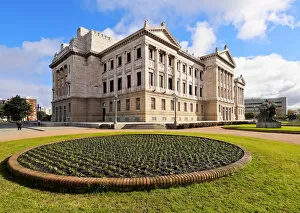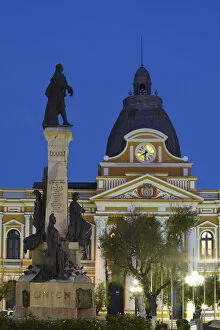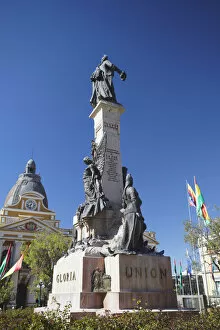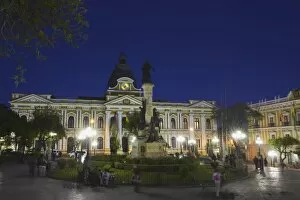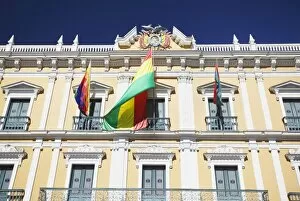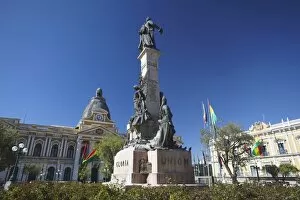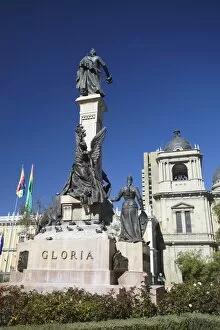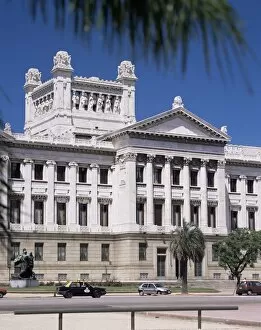Legislative Palace Collection
The Legislative Palace, also known as Palacio Legislativo or Palacio Legislativo de Bolivia, stands proudly in the heart of La Paz, Bolivia
For sale as Licensed Images
Choose your image, Select your licence and Download the media
The Legislative Palace, also known as Palacio Legislativo or Palacio Legislativo de Bolivia, stands proudly in the heart of La Paz, Bolivia. This magnificent building serves as the headquarters for Bolivias Congress and is a symbol of democracy and governance. Located in Plaza Pedro Murillo, within the Aguada Neighbourhood, this architectural marvel offers breathtaking views of its surroundings. As dusk settles over the city, the Palacio Legislativo radiates an aura of grandeur and importance. Steeped in history, this palace has witnessed significant moments that have shaped nations. A captivating engraving depicting a revolution in France reminds visitors of the power held within these walls. Not far from here lies another Legislative Palace in Montevideo, Uruguay. Serving as the headquarters for the Uruguayan Parliament, it too exudes authority and significance. Its presence commands attention amidst Montevideo's bustling streets. Back to La Paz we go—Palacio Presidencial (Presidential Palace) stands tall alongside Monument and Palacio Legislativo in Plaza Pedro Murillo. These structures collectively represent Bolivia's rich political heritage and serve as reminders of its democratic values. As night falls on La Paz, both locals and tourists are captivated by the sight of Palacio Legislativo at dusk. The illuminated facade casts a mesmerizing glow across Plaza Pedro Murillo—a testament to Bolivia's commitment to progress and transparency. In South America's vibrant landscape, few sights rival that of Palacio Legislativo at twilight—the perfect blend of history and modernity against a backdrop adorned with natural beauty. Whether you find yourself admiring Bolivian democracy or exploring Uruguay's political centerpieces—these legislative palaces stand not only as physical structures but also as symbols representing freedom, governance, and unity among nations.


